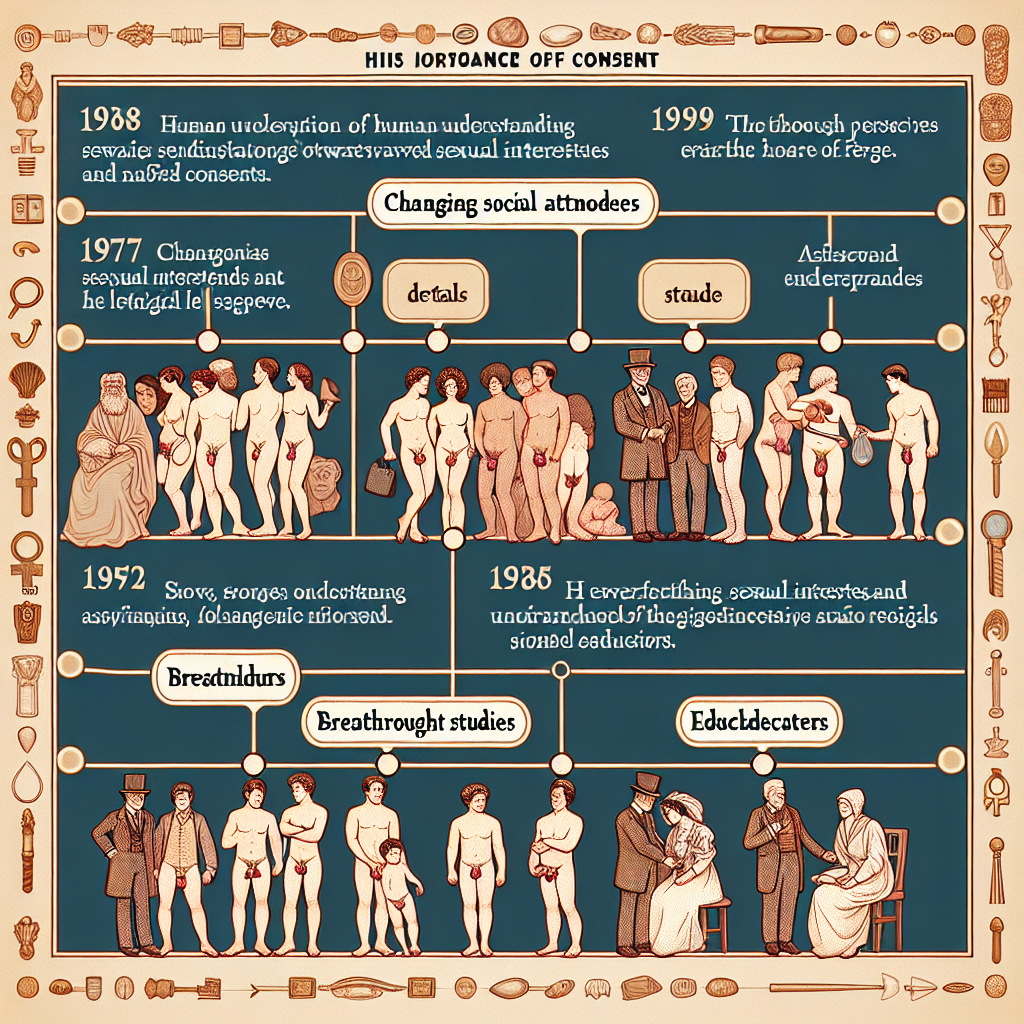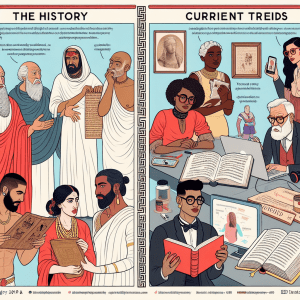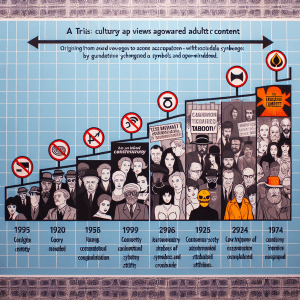Fetish and Kink through the Ages: Understanding Evolving Sexual Interests and Consent
Sexual preferences, fetishes, and kinks have been around for as long as humanity itself. Though often shrouded in secrecy and misunderstanding, these diverse interests have evolved alongside societal norms and taboos. In this blog post, we’ll delve into the fascinating history of these unique desires while emphasizing the importance of consent in every context.
The Ancient Origins of Fetishes and Kinks
Contrary to popular belief, fetishes and kinks are not modern phenomena. In fact, historical records provide intriguing insights into sexual customs of ancient civilizations:
- Ancient Egypt: The Egyptians left behind explicit artifacts and documents, showcasing that sexual pleasure was integral to their societal values. Various gods and goddesses were often depicted in sensual embraces, reflecting an open attitude towards sexuality.
- Grecian Delight: The Greeks were known for their pursuit of pleasure, often engaging in diverse sexual practices. Pederasty, a socially acknowledged romantic relationship between an adult man and a youth, exemplified the complexity of their sexual norms.
- Rome’s Bacchanalian Feasts: Romans celebrated the Bacchanalia, festivals dedicated to Bacchus, the god of wine. These feasts often turned into hedonistic revelries where participants freely expressed their desires, sometimes in ways that modern audiences might categorize as kinky.
Middle Ages: The Shadows of Repression
Unlike the open attitudes of ancient civilizations, the Middle Ages witnessed a significant shift towards repression. Under the influence of the Church, sexuality was a topic shrouded in guilt and purity.
Nevertheless, eroticism found a way to persist. Courtly love became a widely accepted concept—romantic, chivalric affection often expressed through poetry and music, emphasizing a deep emotional bond over physicality.
The Renaissance and Enlightenment: A Rebirth of Curiosity
The Renaissance sparked a renewed interest in human experience, including sexuality. Art and literature began to reflect the complexities of passionate desire more openly. Artists like Leonardo da Vinci and Michelangelo explored the human form with an eye for eroticism, often hidden behind religious or mythological themes.
During the Enlightenment, thinkers such as Marquis de Sade began to challenge societal norms, explicitly delving into controversial topics like sadism and masochism. His writings, although condemned, ignited a dialog about the nature of desire and consent.
Modernity: The Rise of Diversity and the Importance of Consent
Today’s world embraces an ever-growing diversity of sexual interests, thanks in part to pioneering sexologists such as Sigmund Freud and Alfred Kinsey, who brought these topics into academic discussion.
The internet era has further revolutionized our understanding of kink, providing communities where individuals can share their interests openly and find like-minded partners. From bondage to role-play, the spectrum of sexual curiosity knows no bounds.
Most critically, modern discourse consistently emphasizes the principles of consent and mutual respect. As interest in BDSM (bondage and discipline, dominance and submission, sadism and masochism) grows, so too does the understanding that clear, enthusiastic consent is non-negotiable. Terms like “safe words” and “negotiation” have become mainstream, promoting a culture of safety and mindfulness.
Conclusion: Embracing the Spectrum of Desire with Consent
The journey through the ages reveals a tapestry of sexual expression molded by cultural influences, changing norms, and evolving attitudes towards pleasure and fetish. While ancient rituals and modern trends differ, one constant remains: the profound complexity of human desire.
As we continue to explore and celebrate this diversity, reminding ourselves of the absolute necessity for consent can ensure that our pursuits of pleasure not only persist but flourish. By doing so, we honor not only our desires but the humanity and dignity of all involved.



